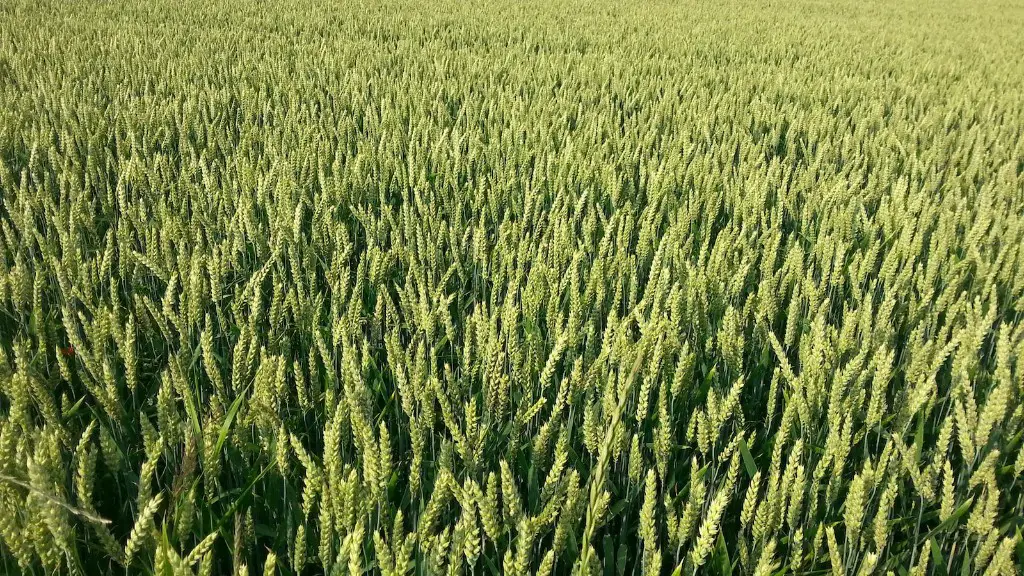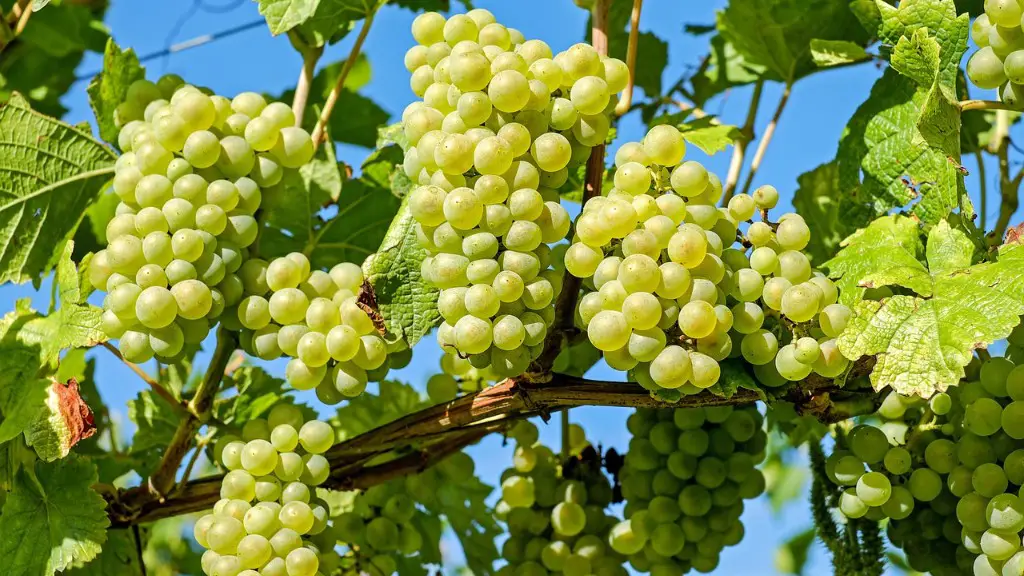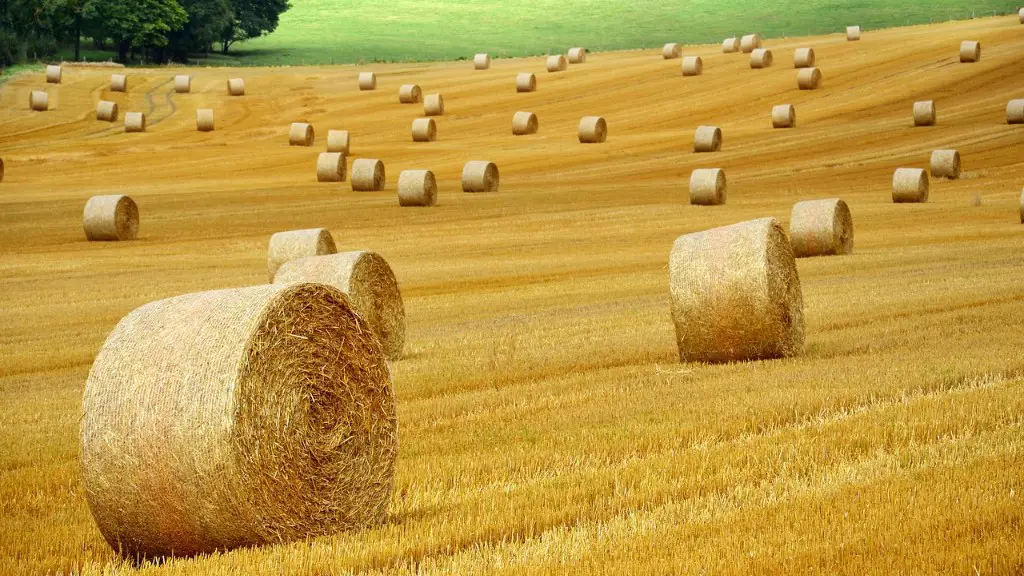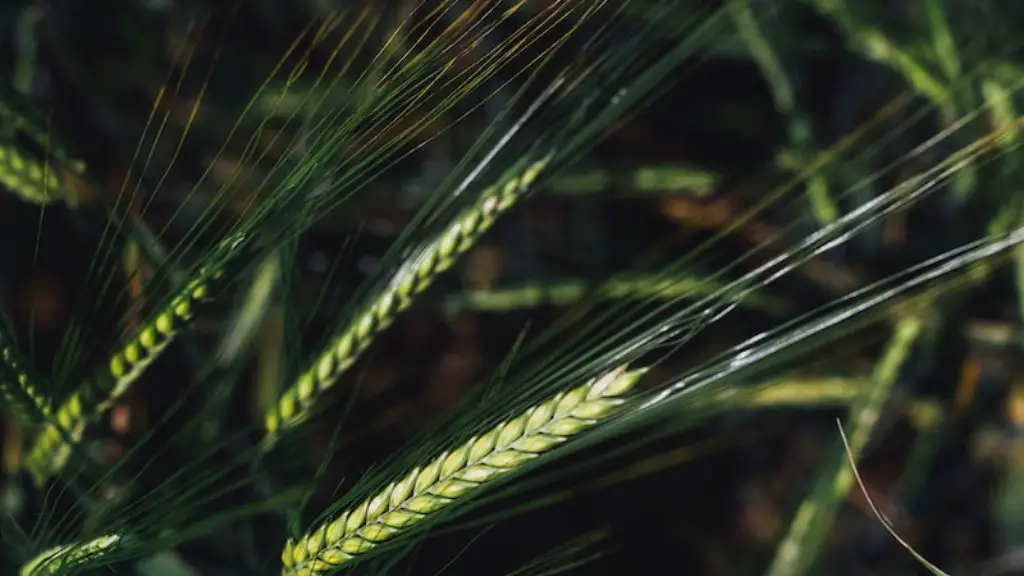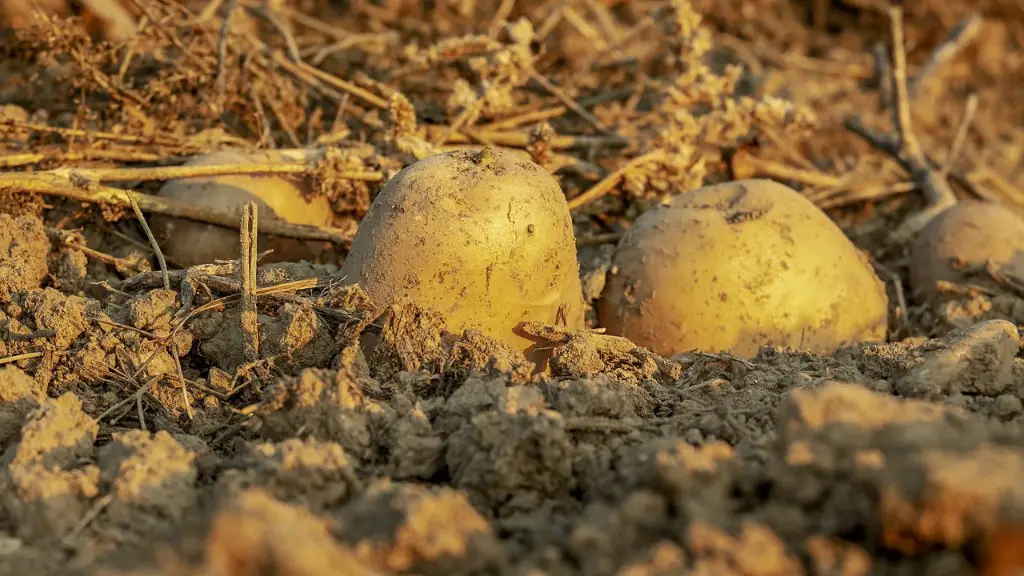Agriculture mechanics is a branch of engineering that deals with the design, construction, and operation of agricultural machinery and equipment. It also includes the study of the mechanical properties of soil and crop plants.
Agricultural mechanics is the study of the machine systems used on the farm, including the operation and maintenance of farm equipment and machinery. It also includes the construction and repair of buildings and other structures on the farm.
What do you learn in agricultural mechanics?
The curriculum for this program includes the study of how machines are used in harvesting, tilling, and planting work. You will also learn how to maintain, adjust, and repair farm machinery and equipment. Other topics include diesel fuel systems, hydraulics, air conditioning, electronics, and diesel electrical systems.
An agriculture mechanic is a professional who repairs and maintains agricultural machinery and equipment. They may work in a variety of settings, including farms, dealerships, and repair shops.
Most agriculture mechanics have a high school diploma and receive on-the-job training. Some mechanics choose to complete vocational school or an associate degree program to improve their mechanical aptitude and acquire additional skills, which may offer a competitive advantage with employers.
Agriculture mechanics must be able to troubleshoot and repair a wide variety of equipment, including tractors, combines, and other farm machinery. They must also be familiar with the operation of this equipment in order to properly diagnose and repair problems.
Strong communication and customer service skills are also important for agriculture mechanics, as they often work directly with farmers and other customers.
If you are interested in a career as an agriculture mechanic, be sure to research the educational and training requirements of the position. Completing a vocational program or associate degree can give you a competitive edge when applying for jobs.
What is agricultural mechanics and metal technologies
The Agricultural Mechanics & Metal Technologies course is designed to develop an understanding of agricultural mechanics as it relates to safety and skills in tool operation, electrical wiring, plumbing, carpentry, fencing, concrete and metalworking techniques. The course will also cover the principles of mechanics, including the use of hand and power tools, and will prepare students for careers in the agricultural mechanics and metal technologies field.
A high school diploma is required with an emphasis on agricultural classes. Beyond an entry-level job, you’ll need an associate’s or bachelor’s degree in an agricultural related field, such as agronomy, plant science, soil or crop science.
Is agriculture subject a good career?
This job is a great opportunity for a career in agriculture. It is best suited for those who have a keen enthusiasm in the agricultural settings and want to apply their engineering knowledge in that field. The job will allow you to work with different aspects of agriculture and help you develop your skills in that area.
The agriculture industry is an incredible opportunity for those seeking high-paying careers. The industry is constantly evolving and in need of new talent. Agriculture careers provide job security, competitive pay rates and the chance to make an impact.
What is the most demanding job in agriculture?
There are many top careers in agriculture, and the list presented here is just a small sampling. Agricultural engineers use their knowledge of engineering, agronomy, and soil science to solve problems related to crop production and soil and water conservation. Agricultural economists conduct research and provide policy advice on agricultural issues such as food security, farm incomes, and rural development. Farm managers are responsible for the day-to-day operations of a farm, including crop and livestock production, financial management, and labor relations. Soil and plant scientists conduct research on the physical, chemical, and biological properties of soils and plants, and develop new ways to improve crop yield and quality. Conservation planners develop plans and programs to protect and conserve natural resources such as water, land, and forests. Commercial horticulturalists grow and sell horticultural crops such as flowers, vegetables, and fruit. Agricultural salespeople sell farm products, equipment, and services.
Agricultural mechanics must be able to use their hands to repair and maintain equipment. They must also have strong mechanical skills to be able to diagnose problems and perform repairs. Good organizational skills are also important so that they can keep track of tools, parts, and schedules.
What occupation is included in agricultural mechanics
An agriculture mechanic is able to repair and maintain different types of farm equipment. They have a deep understanding of how this equipment works and are familiar with the common problems that can occur. As a result, they are able to quickly and efficiently fix any issues that may arise. This allows farmers to keep their equipment in good condition and running smoothly, which is essential for keeping their operations running smoothly.
Agricultural machinery mechanics are responsible for the repair and maintenance of farm equipment. This can include tractors, tillers, combines, and other machines used in farming. They may also work on irrigation systems and other farm infrastructure.
Industrial machinery mechanics maintain and repair factory equipment. This can include conveyor belts, large fans, and production machines. Theymay also work on electrical systems and other factory infrastructure.
What do agricultural mechanical engineers do?
Agricultural engineering is a branch of engineering that deals with the design, construction, and maintenance of structures and facilities used in farming and other agricultural operations. Agricultural engineers attempt to solve agricultural problems concerning power supplies, the efficiency of machinery, the use of structures and facilities, pollution and environmental issues, and the storage and processing of agricultural products.
The use of sophisticated technologies in today’s agriculture is routine. Robots, temperature and moisture sensors, aerial images, and GPS technology are all used in modern agriculture. This allows farmers to more accurately monitor and manage their crops and livestock. These technologies also help to improve yields and reduce costs.
Is it hard to study agriculture
No, BSc Agriculture is not a tough course. It is a course that requires knowledge in various science subjects such as biology, chemistry, and physics. Apart from these, students also need to be skilled in mathematics and statistics.
If you want to work in cropping systems engineering, plant specialist, crop inspector, or research scientist, you should consider getting a job in educational institutions, government, or industry. You can also pursue a career in plant breeding, plant propagation, crop production, and genetic engineering.
What jobs can agriculture get you?
The environment and agriculture sector is a vast and varied sector that offers a wide range of different job opportunities. From agricultural consultants and animal nutritionists, to ecologists and environmental engineers, there are a variety of different roles that you can explore within this sector.
If you’re interested in working in the environment and agriculture sector, then be sure to check out the latest vacancies from employers hiring now. You could be the perfect candidate for a role as a fisheries officer or farm manager. Alternatively, you could use your hydrogeological skills to support environmental conservation efforts.
There are many ways to find a career in agriculture. One way is to talk to your local farmers and see if they are hiring. Another way is to look online for job postings. Finally, you can check with your local extension office to see if they have any programs or events that can help you get started in agriculture.
Can you make good money in agriculture
Agriculture is a great opportunity for entrepreneurs. With the right business plan, you can make a lot of money from agriculture. There are many career options in agriculture, from owning your own farm to working as an agricultural consultant. As the world keeps revolving, there are now different ways you can earn from agriculture without owning a farm or even physically being present on the farm. You can start an agricultural business that provides services to farmers or you can invest in agricultural real estate.Whatever path you choose, there are many ways to make a successful career in agriculture.
No, it isn’t hard. It just takes some time to get used to it.
Conclusion
Agricultural mechanics is the study and application of engineering principles and practices to agricultural systems and equipment. It is a broad field that encompassing many different specialties, including agricultural engineering, soil science, animal science, and crop science. Agricultural mechanics is a critical component of modern food production and plays a vital role in ensuring that our food supply is safe, reliable, and efficient.
In conclusion, agriculture mechanics is the process of applying engineering and mechanical principles to agricultural equipment and machinery. This field of study includes the design, development, maintenance, and repair of farm equipment and machinery. Individuals who specialize in agriculture mechanics play a vital role in ensuring that farm equipment and machinery are able to operate effectively and efficiently.
